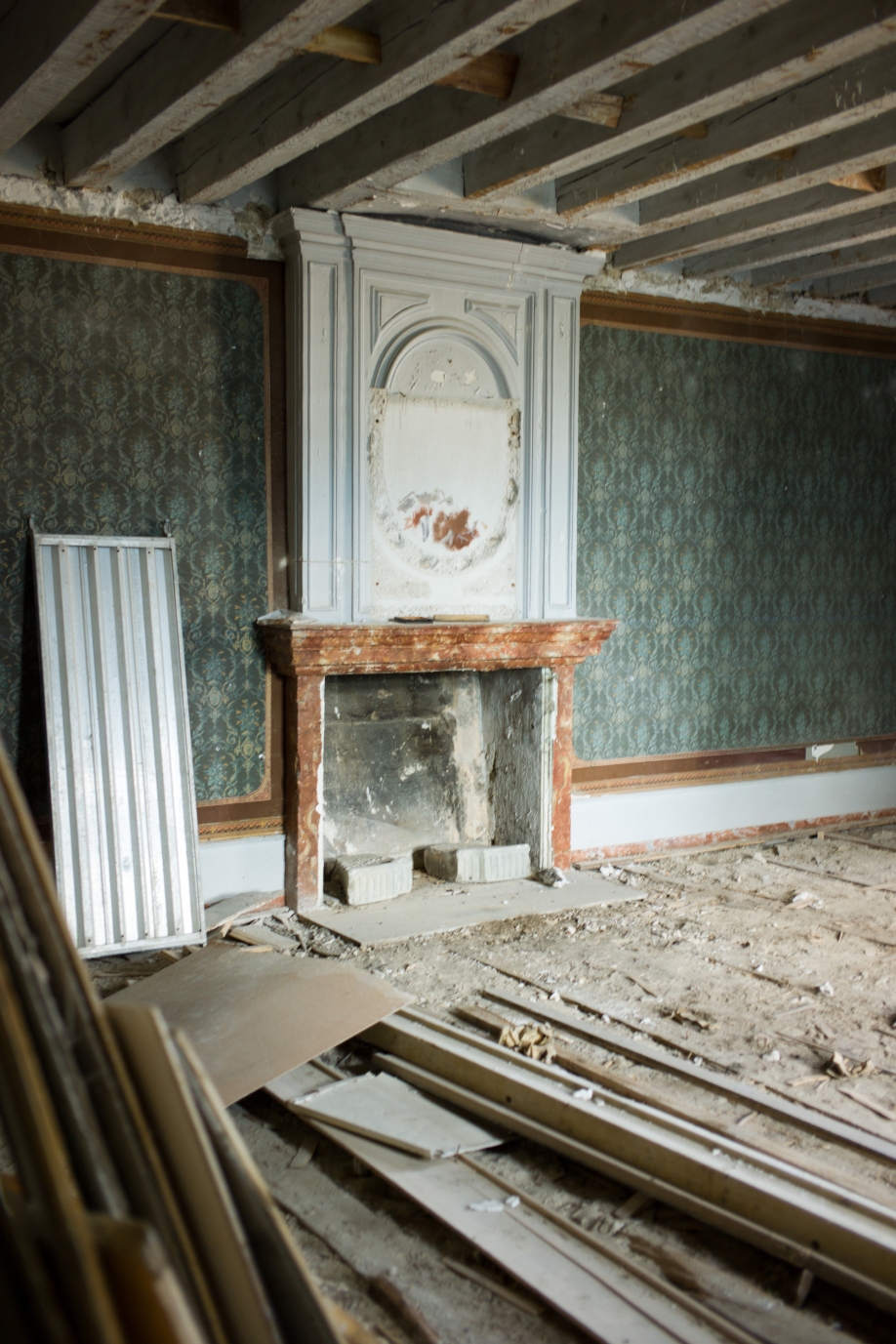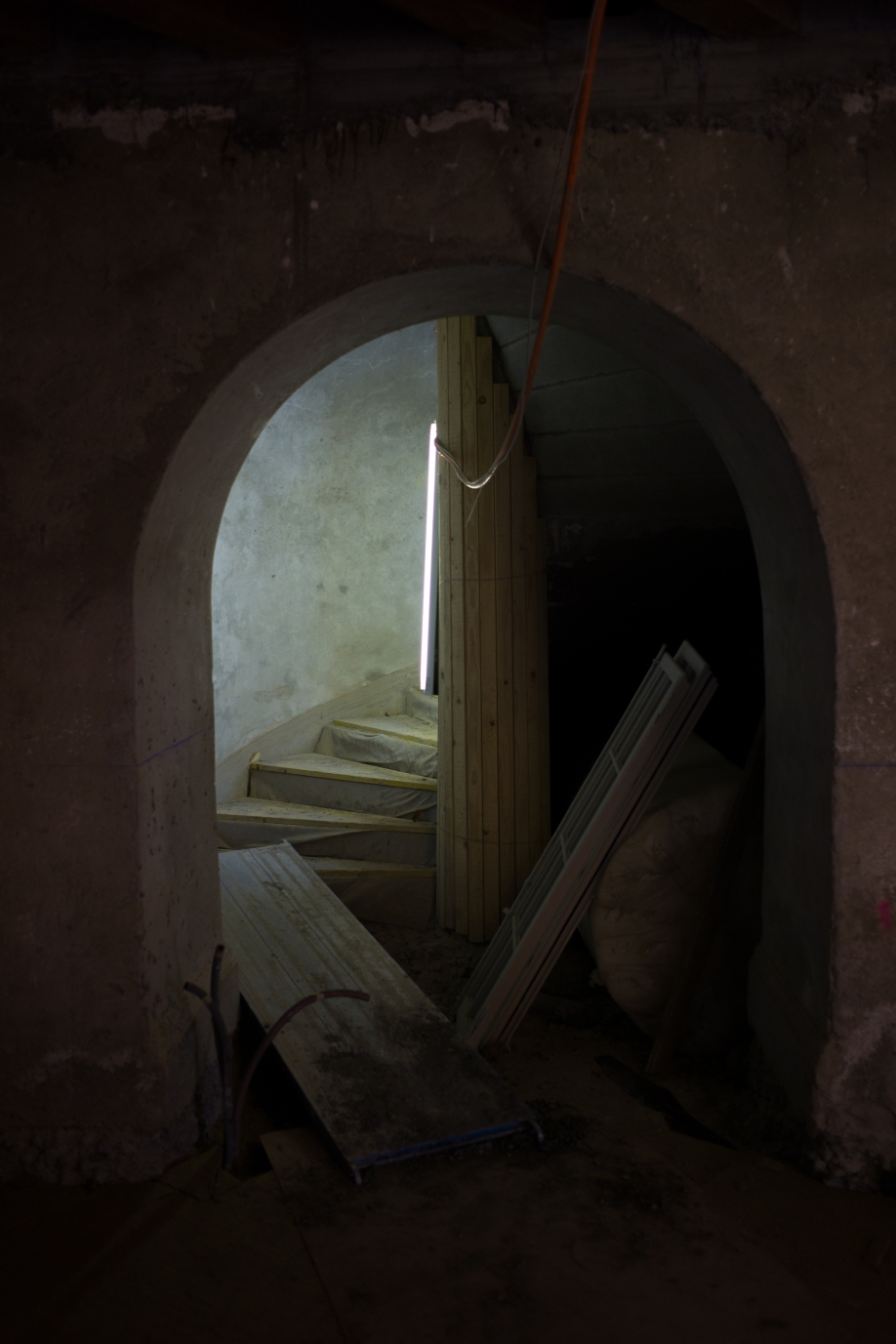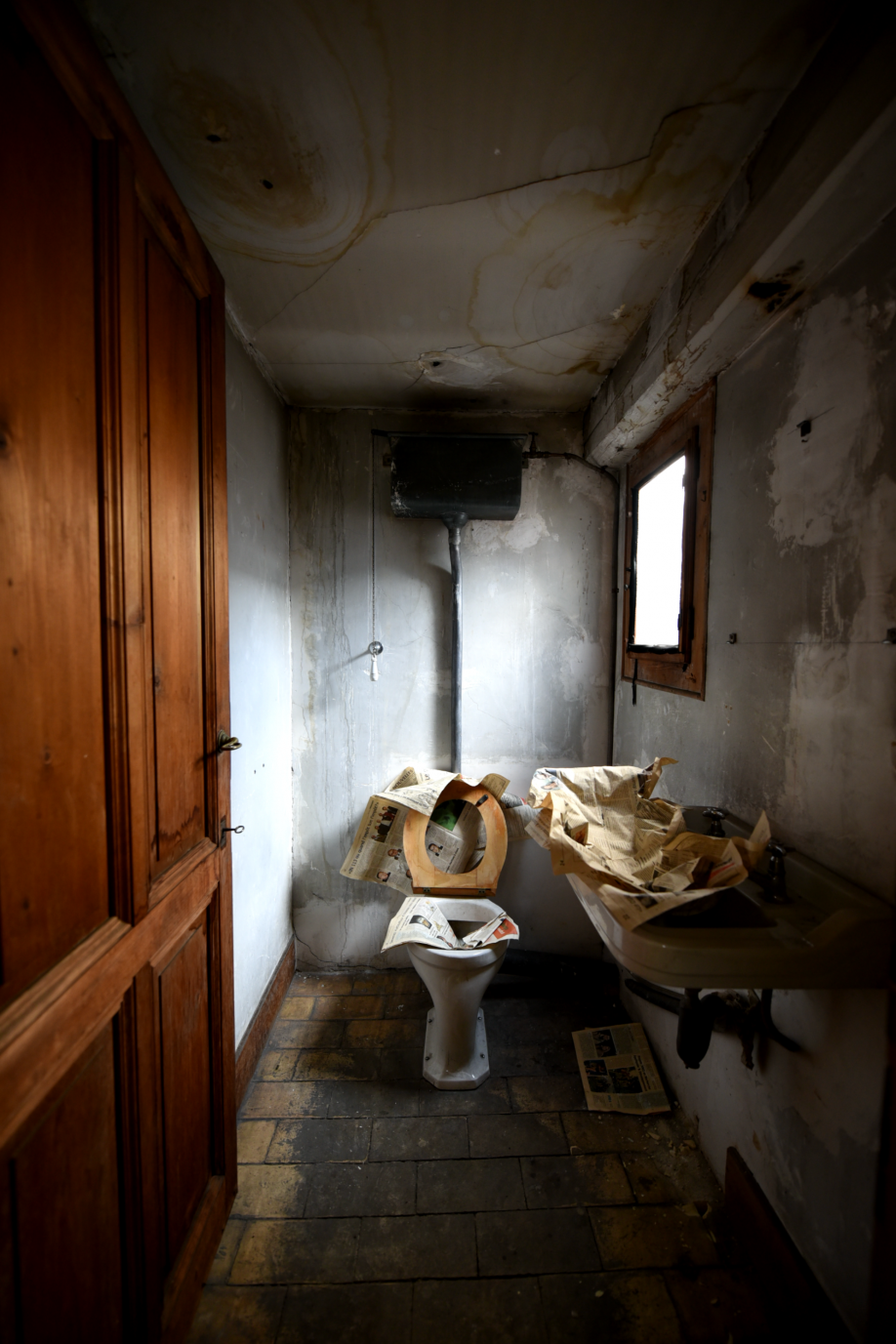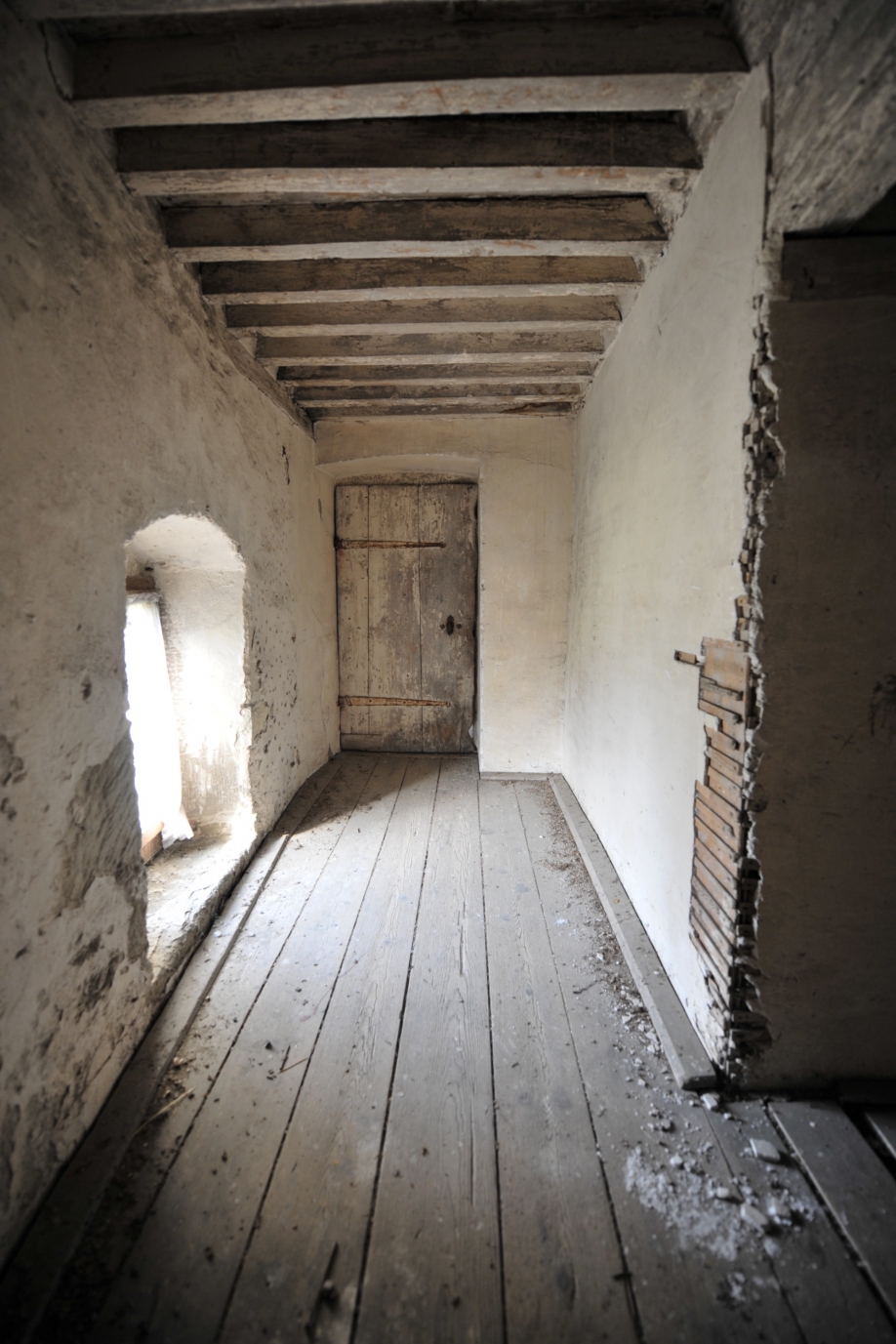SLEEPING PLACES
Time out
by Jérôme Meizoz
The attic is a dormant place, separated from the secular flats, and does not seem to have been used for a long time. Twice a year, after negotiations with the caretakers, two unmarried sisters, the boy is allowed to explore it for a few minutes. It is accessed through a trapdoor in the ceiling of the bathroom.
First, the floor space has to be cleared, covered with old newspapers to keep out the black dust from above (the gaudy covers of a local newspaper are trampled on). The youngest of the guards grabs a pole and hooks the trap door, which lowers with a long moo. The complaint of the springs finished, the whole space still vibrates. A silence spreads from the dark mouth, dull and disturbing. In the attic, the unlit surface is chilled with draughts, a thick layer of soot strewn across the floor. By the light of the torch, you can begin to make out the junk that is spread out there. The family's entire material past has found a home, or tomb, in the perimeter. On a wire, the grandfather's black umbrellas, useful in the rain as well as in the sun. The age of the hat, the caps. Tablecloths, towels, embroidered linen shirts overflow from a trunk, now soiled and with holes. Country tools, chicken cages, chains, axes and straps. The set of bells for the successive cows (they were always called Marquise), one by one left at the slaughterhouse, intact with their ornate collars. A few pieces of furniture out of order, a dismantled bed, some boxes. Despite the general state of abandonment, each object recapitulates in itself the gestures of its users. A poor material repository, a memory, or simply a dump...
All the men and women-universes who wielded these tools have fallen silent. Their worlds sleep under the roof, untouched by comment. As if forgotten by all, they freeze in winter, blister with heat in the splendour of July. Only the boy seems to think about it. The others have moved on, they want shiny cars, love marriages, household appliances. They are looking for new names for their children that will erase the worn-out words of their forebears. The boy asks questions of the increasingly older women, who have remained without descendants at the controls of the ark, all its cargo of dead time silted up above the trapdoor. They tell him snippets of their lives, but they do not disturb the silence of the objects. He imagines the faces of the grandfather, of Aunt Anna who died just after her marriage, of her father who was "thrown into the Rhone" in despair. Under the roof there are many religious remains, after the duties of the catechism, the obligations of mass and Lent, a whole world settled on tiptoe, towards the end of the 1960s. A thousand years of rites and decorations had disappeared as if they had never happened. Erased. Thus, here and there, we come across dusty missals, smudged statuettes of virgins, broken crucifixes with one-legged or decapitated Christs. An edition of the devotional life of St. Francis de Sales stands next to a calendar of religious festivals.
Although he was born at the end of that world, the boy knew more or less what it was all about, since he went to mass every Sunday, learned to receive the host in his mouth and recited by heart, with a few stutterings, his Act of contribution. He had to invent sins to satisfy the priest's ear, because he definitely did not understand the fault well. The peasants, in centuries all alike, had carried around their old gestures, barely repainted in Roman colours. Ursula had always plaited, like her mother, a very un-Catholic St. John's wreath, delivered to the dew of June 24, to celebrate the cattle of misfortune.
A living house, a house of men and women of toil, you who were bought with your eyes, as the grandfather used to say, to pay you back penny by penny, stone by stone. Mother house of work, of parties, of wakes, ten cats and three generations of children have slept in your coolness in August. A house lit up every evening like a lantern in the bare countryside, overgrown with foliage in May, fragrant with rotting fruit in October. A white ship at anchor all winter, a house inhabited, left, forgotten.
A stronghold guarded by women with no descendants, you are gradually becoming a repository, a museum, a tomb... Should we dig up your secrets and wake up your dead?
Haunted house, give me back my freedom! Have I not documented your obese memory enough? Are there no other lives than yours?
To the land that reassures, to the property, the lineage and the inheritance, answer the roads and their passers-by, like me "strangers and travellers on the earth".




